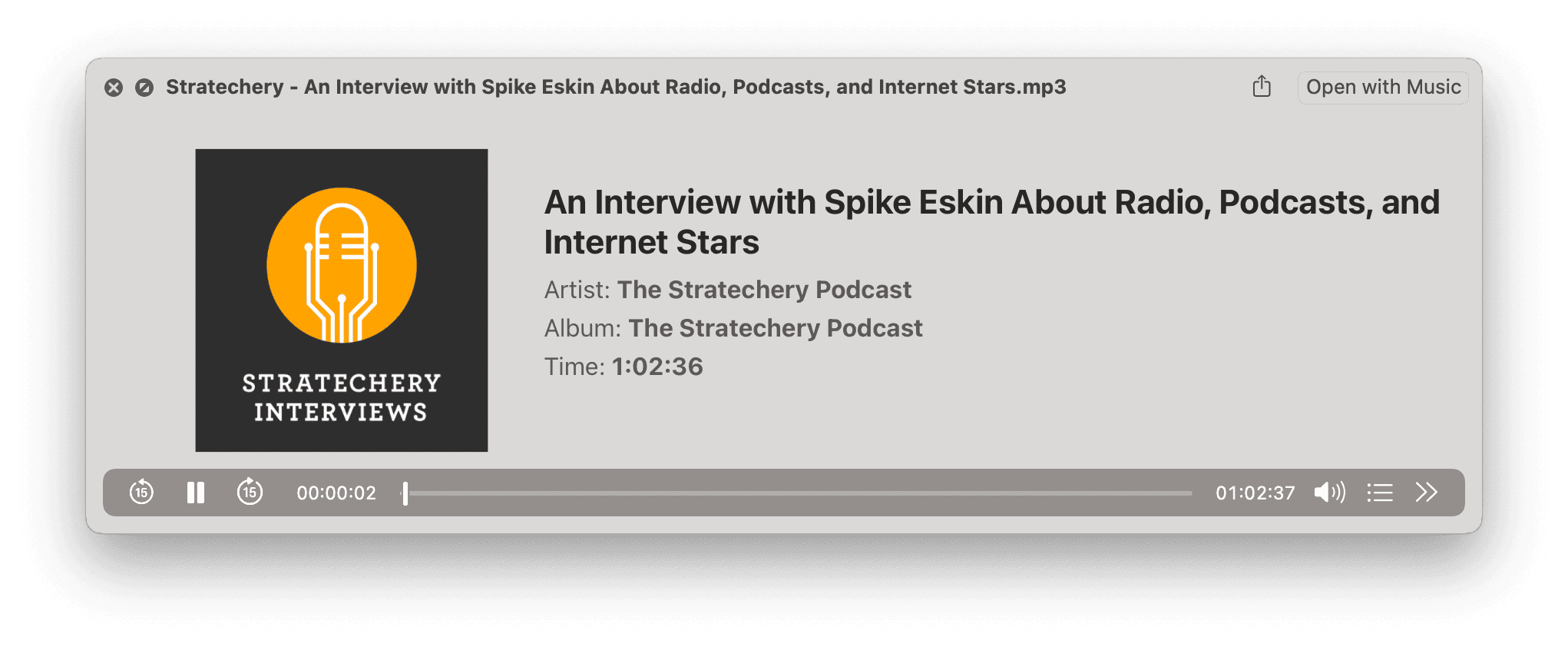Hi! My name is Josh, this me blog.
The dance of pleasing the social media algorithims of the world’s biggest companies, whilst being beat to death by strangers with their comments displeased me so now I’m here.
I wish I were the kind of person who could just live without broadcasting. But there’s an animal inside me — right down in the marrow — that keeps asking ‘can you see me?’ and silence has never once soothed it.
-
Brought wedding-ready two pairs of pants and three shirts to Queenstown for three weddings here this week with the full confidence that one of the pairs of pants would serve double duty.
Both ended up in the snow mud, and I think I’ve cracked my ribs.
It’s now 10pm at a laundromat.
This is the exciting life of a travelling adventure elopement celebrant.
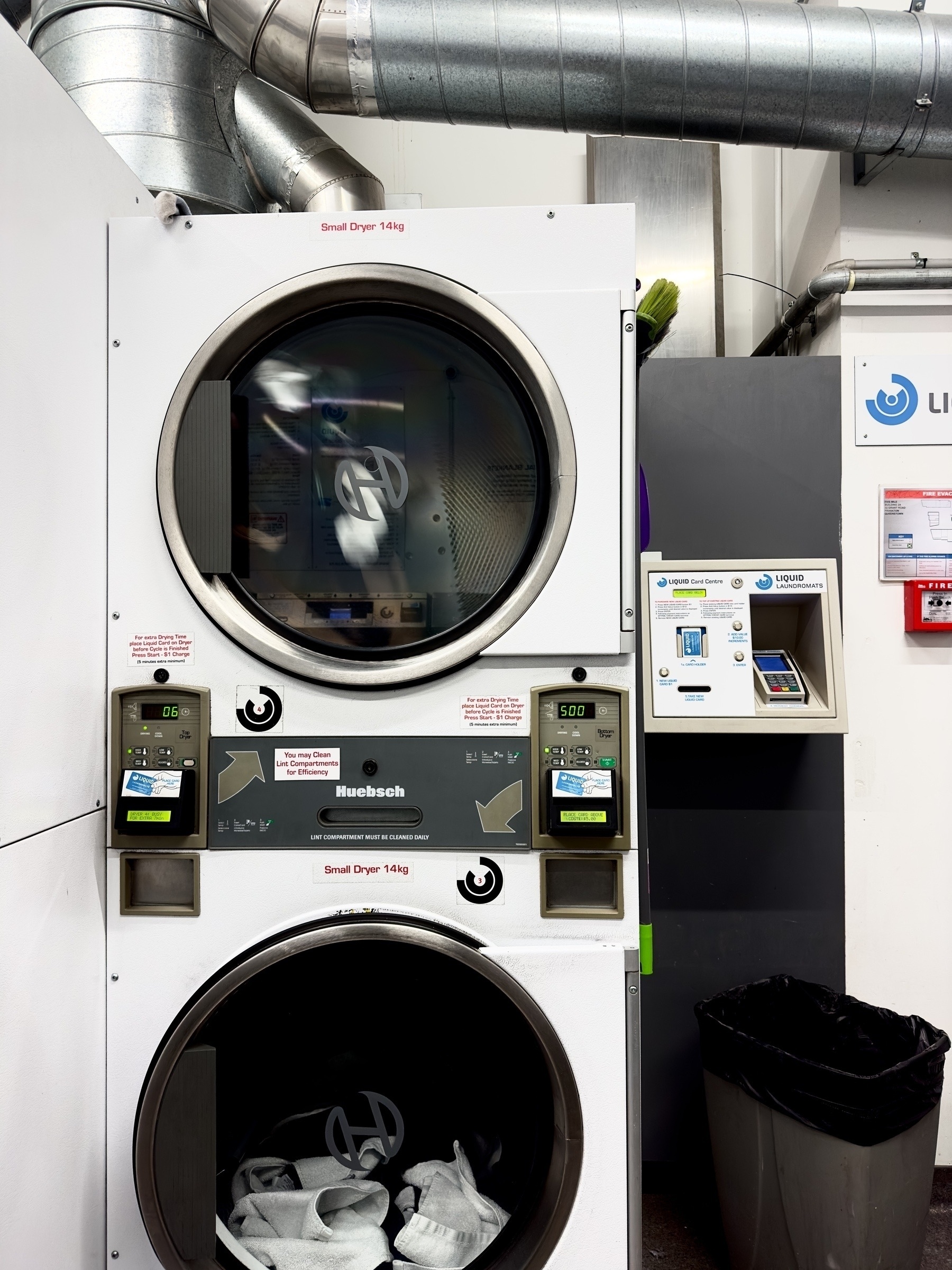
-
I've realised that I am not equipped enough to manage replies to my actual Mastodon account - @withers@social.lol - and my Micro.Blog account, @hello@joshwithers.blog - so I'm totally migrating my Fediverse life to the omglol kingdom. This is the way.
-
This reporting on the mysterious 777 Partners and it's Australian investment in airline, Bonza is a good read and good reporting by Ian Verrender and the ABC.
Virgin Blue executive Tim Jordan, claimed from the outset that he needed 10 aircraft to make the new operation viable. When he called in administrators this week, he had just four.
The large Boeing 737s are arguably the wrong fit for Bonza, flying second and third-tier routes, and appear to have been used as a means to soak up the US backer's fleet and provide it with income.
-
Happy Star Wars Day!
I saw Episode 1 at the cinema this week and I’ve got a hot take.
Jar Jar Binks is an important character and the people that hate him, hate him because they see their clumsy selves in Jar Jar and they need to talk to their therapist about it.
Also, adding midi-chlorians to the Star Wars canon was weird. Welcome to my TED Talk.
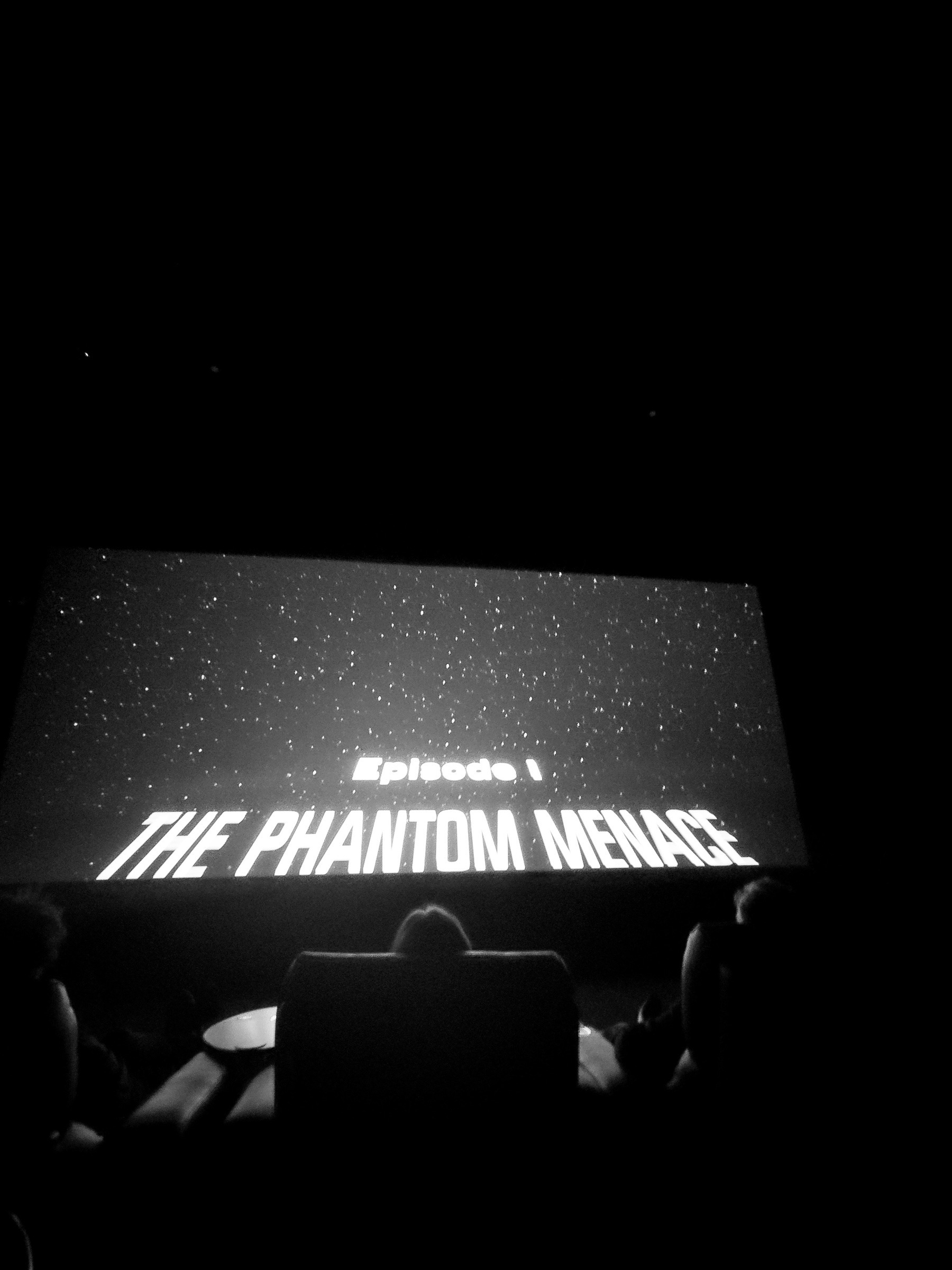
-
Weird week to be running an airline
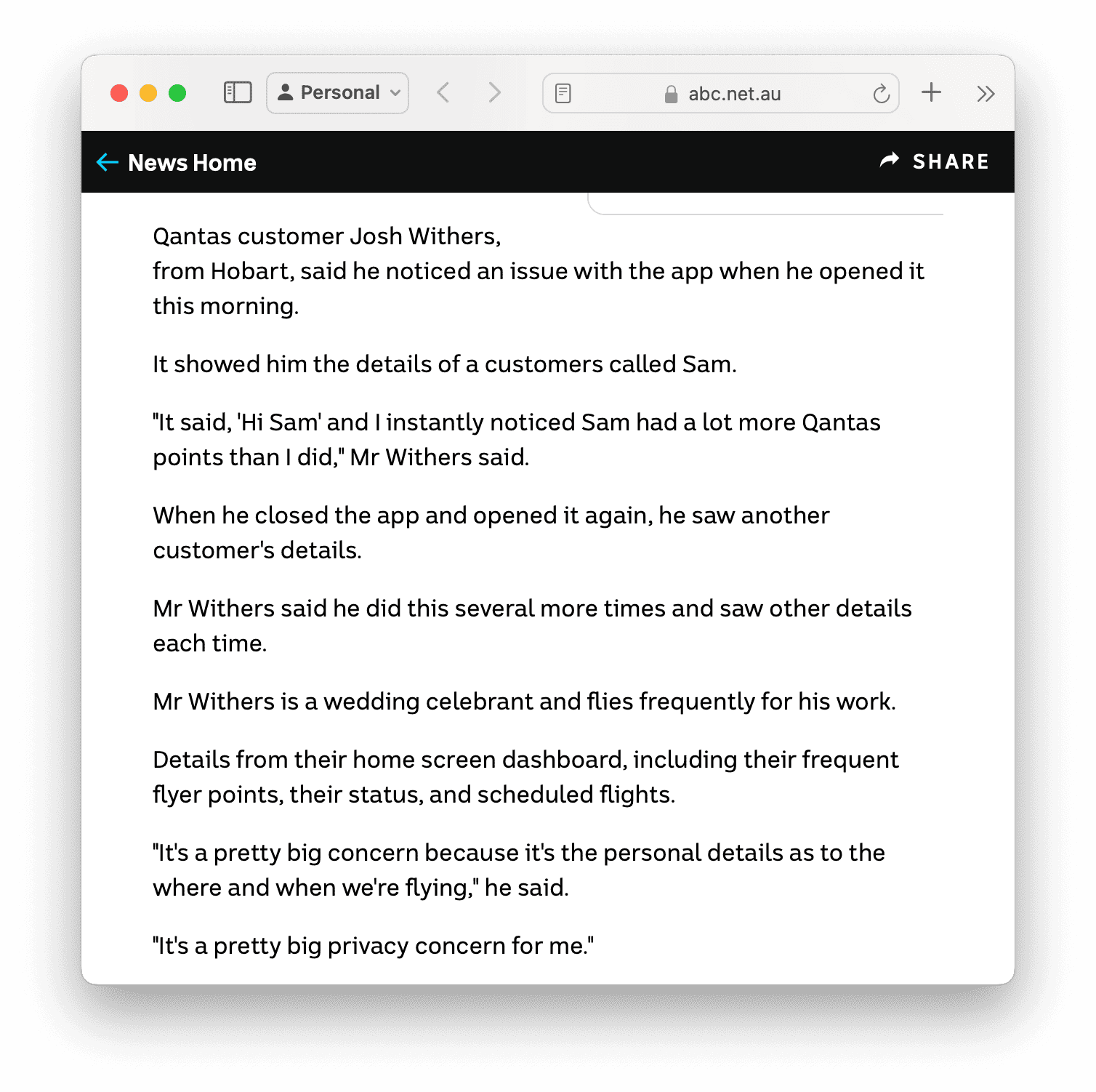
-
The parable of the prodigal traveller:
“For this budget traveller of mine was dead to me and has now returned to life. He was flying Bonza, but now he is found.’”
Jetstar 15:24
-
Wedding photography is about to evolve in two ways.
- After a century in the closet, Sepia is about to come into fashion
- The wedding content creator is only a temporary role in the industry, the wedding photography market will splinter, with some wedding photographers moving down market to push the content creators out, and some will move up market, and all will need to reconcile the fact that no-one is hoping their wedding photographs and films take weeks or months to colour grade and process.
An update:
Post by @hellojoshwithersView on Threads -
One day, when I grow up, I'd like an Apple Jonathan please
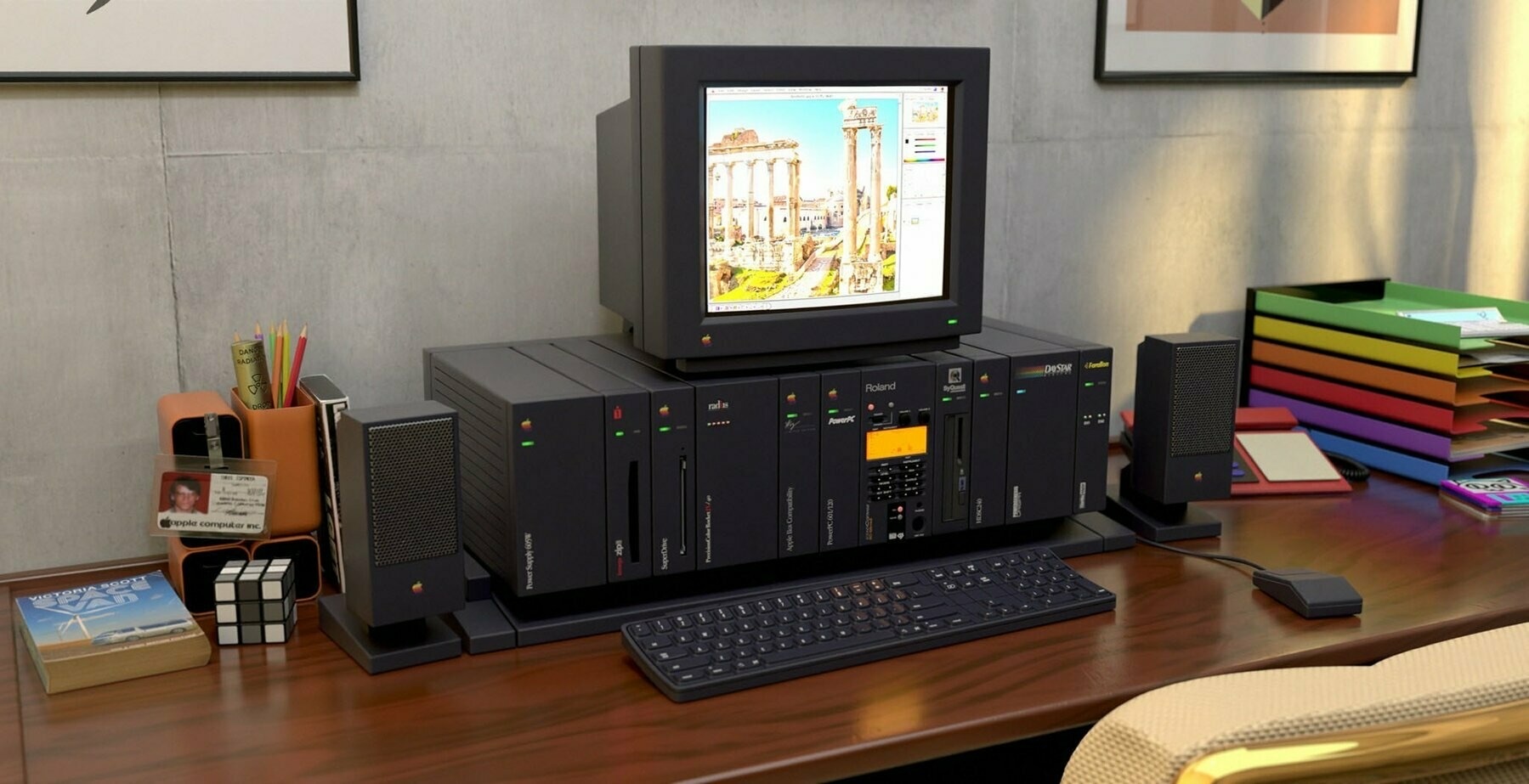
-
I honestly didn't know that public speakers like comedians, Arj Barkers, and wedding celebrants were allowed to have opinions on babies being in the audience.
I hereby request that all babies at weddings I'm officiating in the future would share their snacks with me, or they can leave.
-
The internet’s all upset at my latte/flat white comments while I’m over here drinking a fat white, a long black with a dash of pouring cream
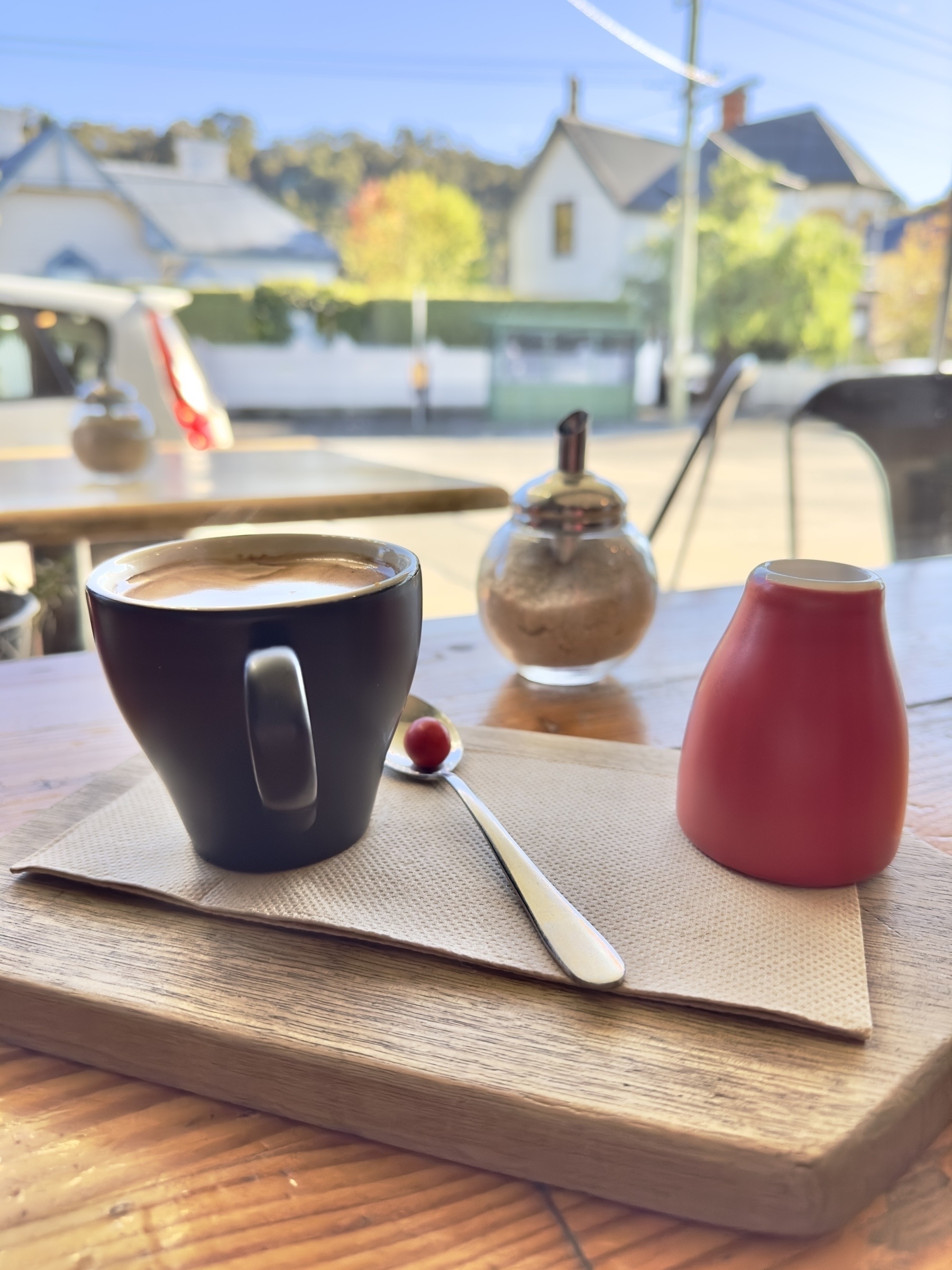
-
What's the word for when something is a hilarious joke but also very true? I also own and recommend whichever Brother printer you want, I got the MFC, because I needed to scan things.
-
This reminds me of the internet I grew up and I love it so much: After The Beep.
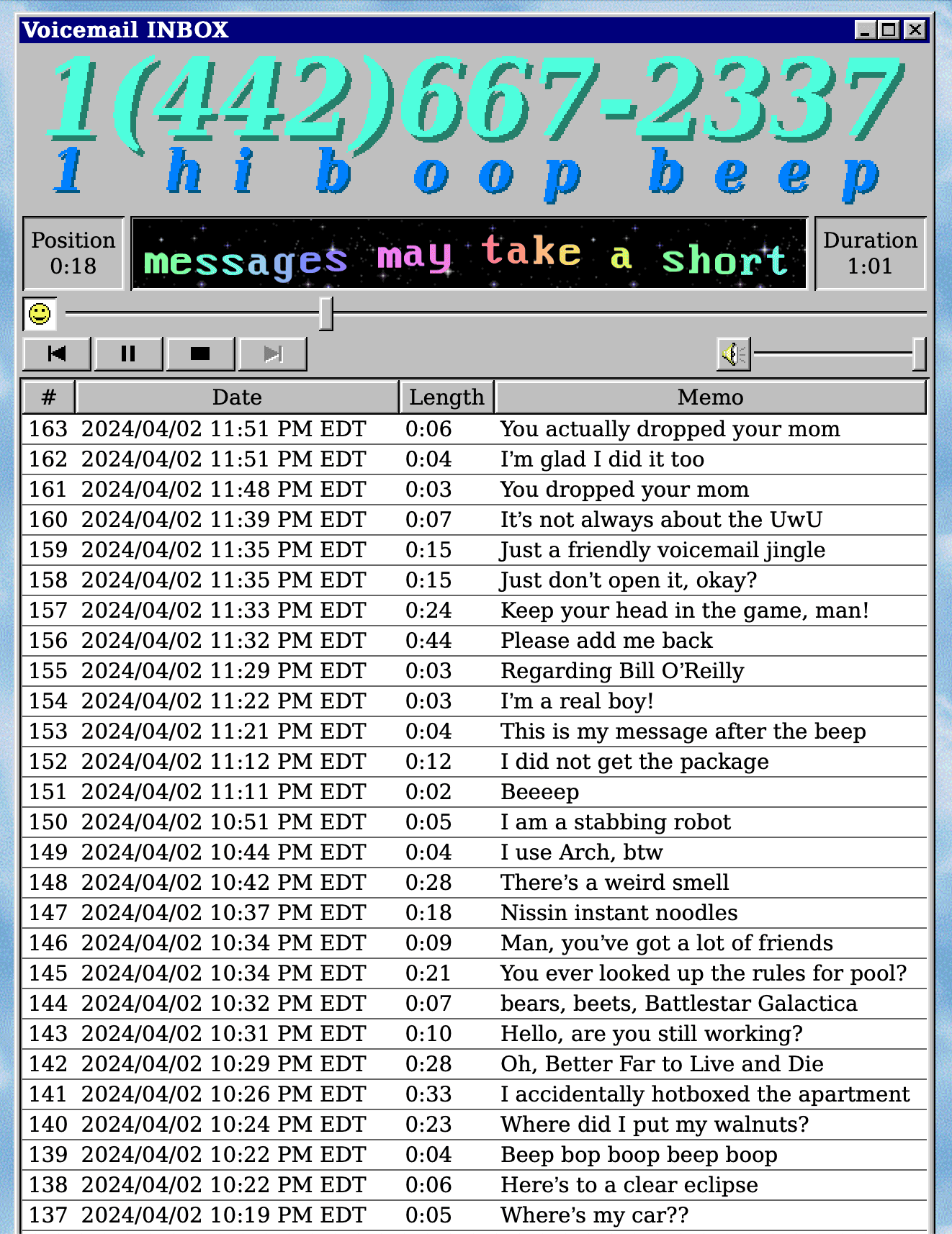
-
As March 2024 almost comes to a close I’m reminded how it’s four years since my life fell apart.
Four years on I’m seeing a therapists and building a new life in Tasmania, basically starting a-fresh, it’s like 2012 all over again, the 100% brand new kid on the block.
Still tens thousands of dollars behind.
Still mentally scarred quite bad.
But I turned a corner recently. I was encouraged to understand that no-one from any government or any group is going to come and apologise and I need to forgive, and move on.
I was so busy holding on for dear life that I never even realised that I was the one holding myself back. Covid wasn't my fault, but letting it dictate my mental wellbeing in March 2024 is, and it's never too late to see a therapist and to talk honestly with friends.
-
I heard you could install Linux on an Apple Silicon MacBook Pro ... so I did it ...
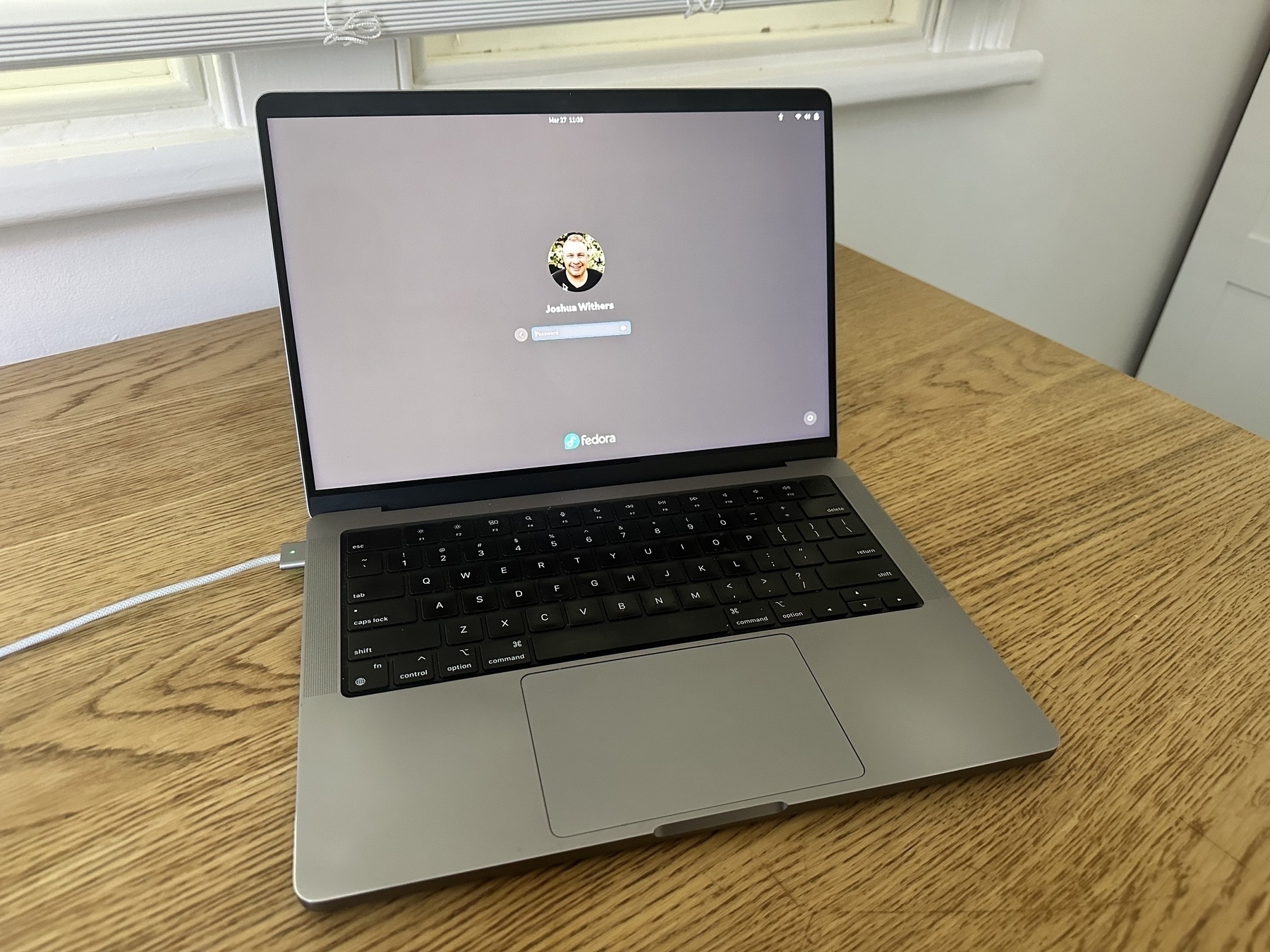
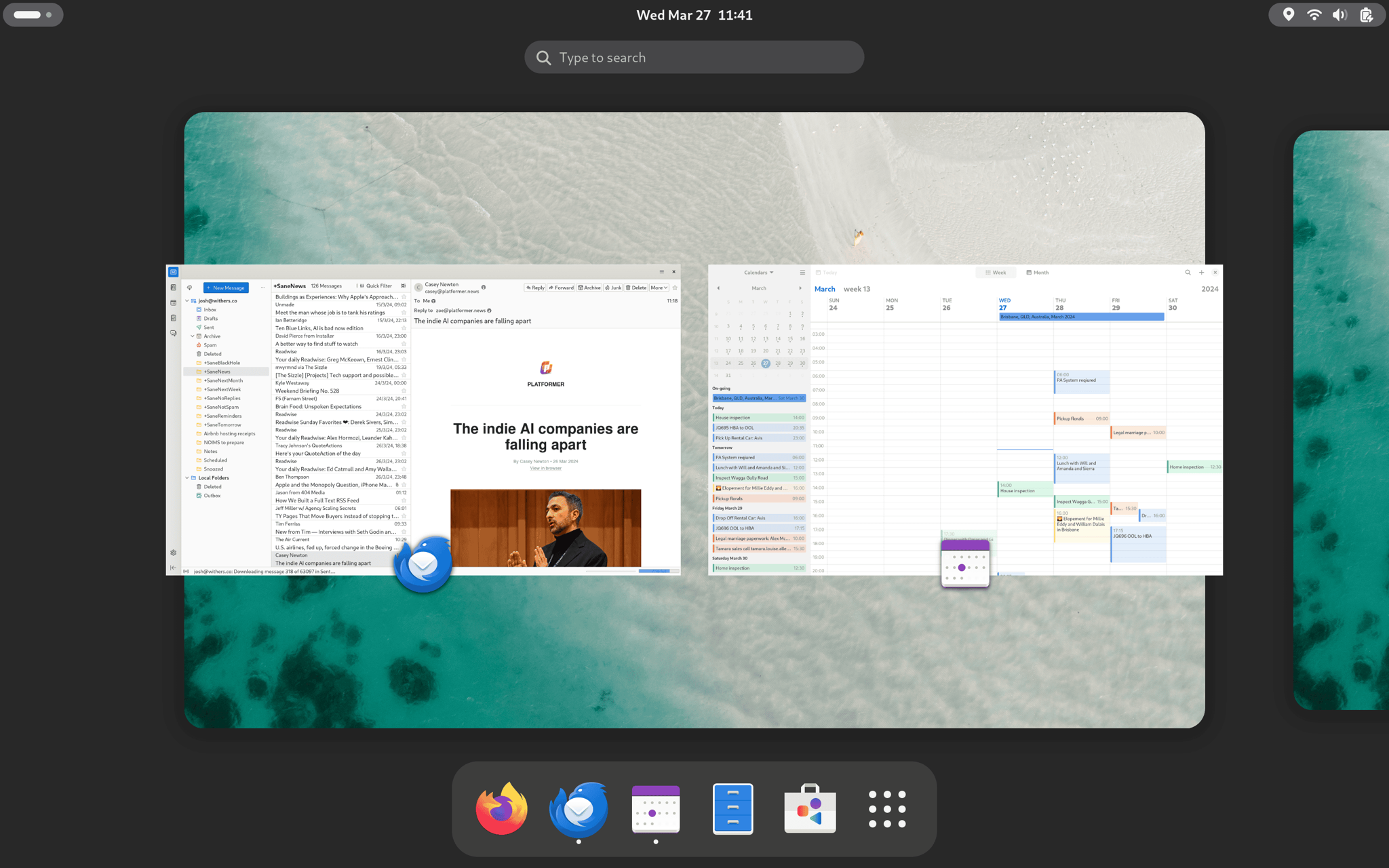
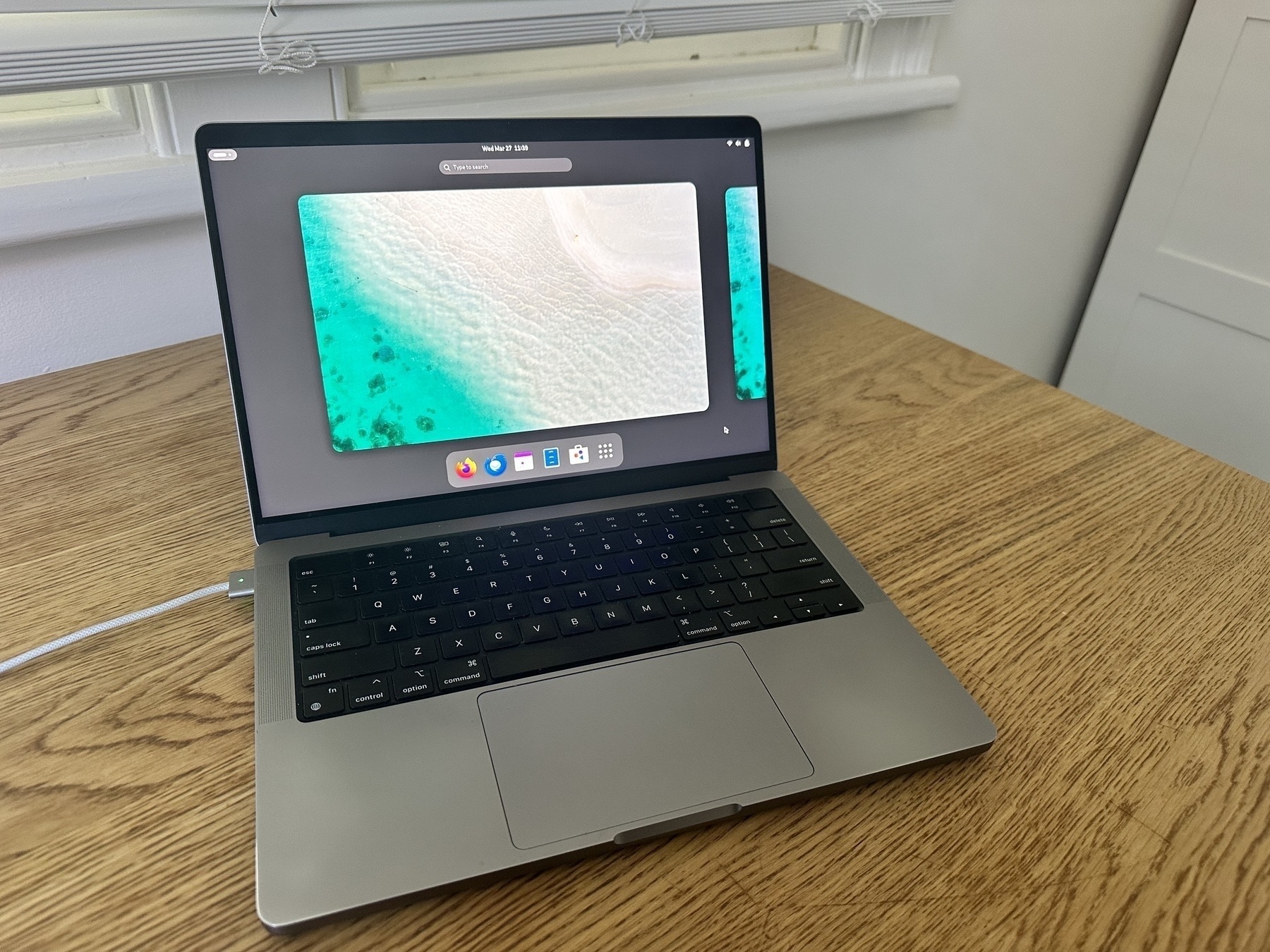
I have no idea what I'm doing, I'm like a toddler flying an A380.
-
Found this old piece of pretty poor writing by me on Medium, about podcasting from 11 years ago.
-
The thing that will bring our society to an end is our compulsion to insist that things are other people’s problems
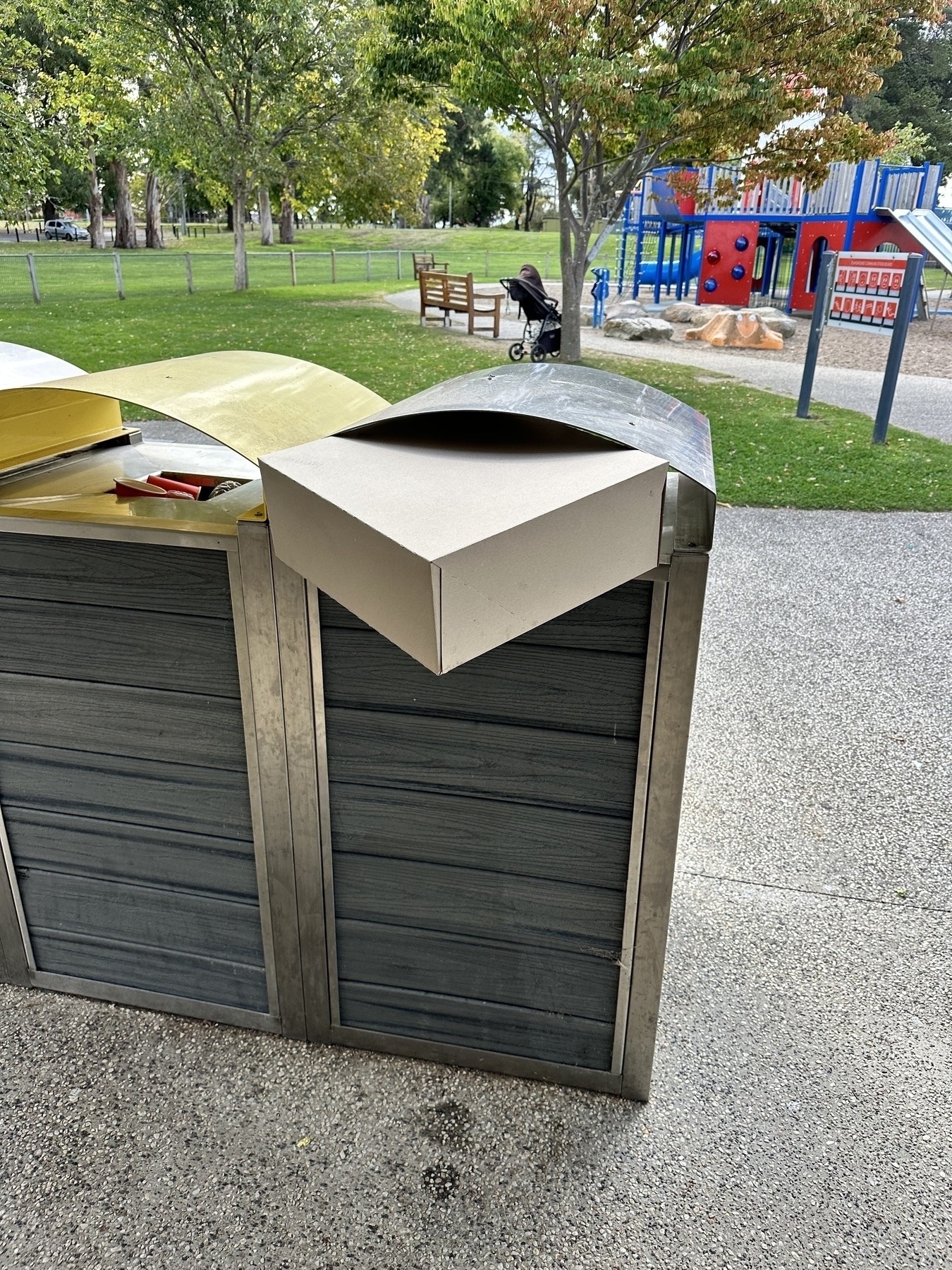
-
You might have noticed Kate Middleton has been a bit quiet on the socials lately. Well, let's just say Tasmania now has two princesses. Tasmania's Queen of Denmark Queen Mary, and me, the, Josh Withers, the Princess of Photoshop.
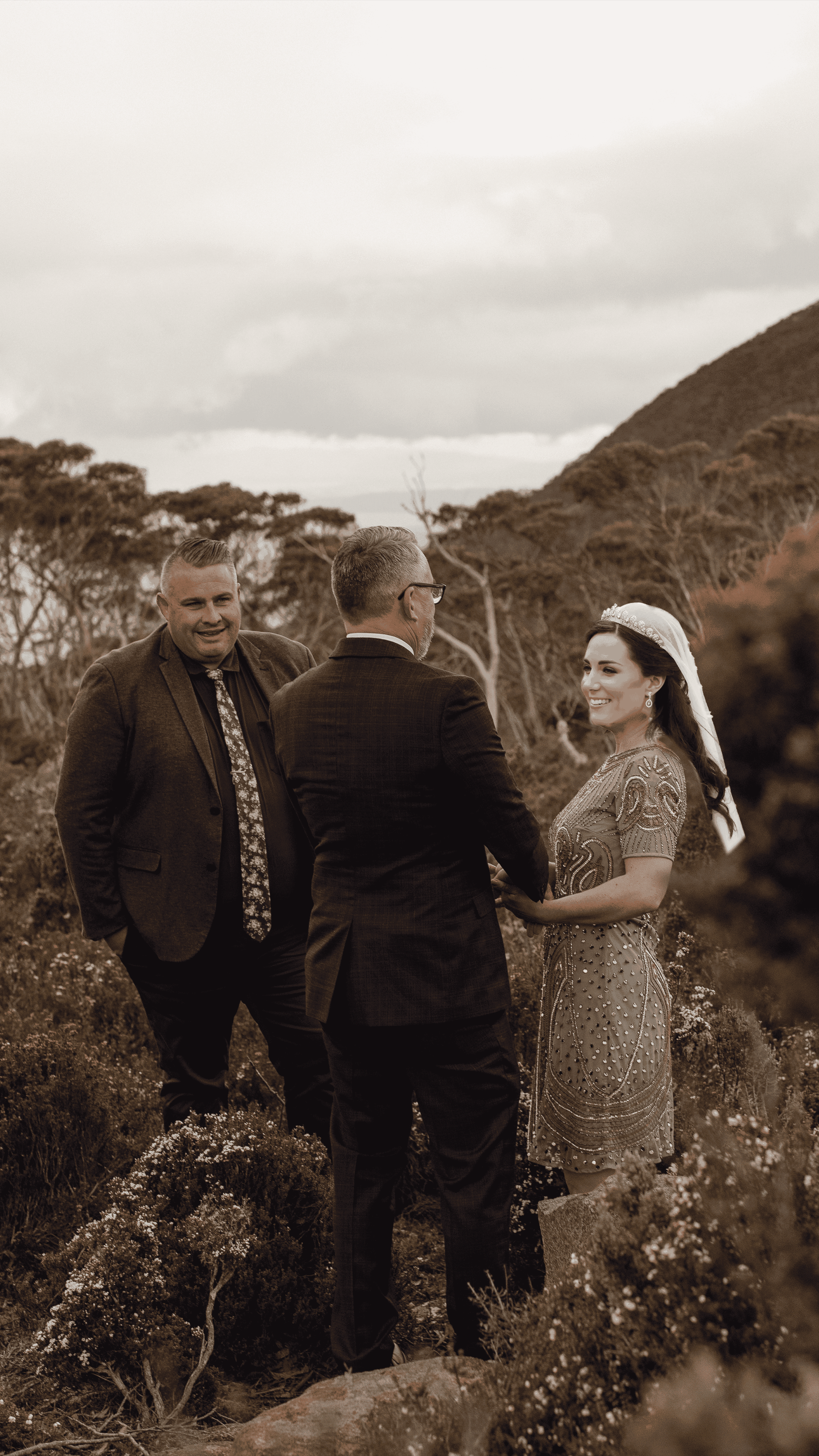
-
Naval Ravikant, on the modern struggle:
Lone individuals summoning inhuman willpower, fasting, meditating, and exercising...
Up against armies of scientists and statisticians weaponising abundant food, screens, and medicine into junk food, clickbait news, infinite porn, endless games, and addictive drugs.
-
Finished reading: Extremely Hardcore by Zoë Schiffer 📚 what a terrifyingly odd account of one of the richest men alive today.
-
Palmsy is amazing.
A cute little social network just for you with fake likes and notifications from your friends.
We should all tell our parents that this is the new Facebook.
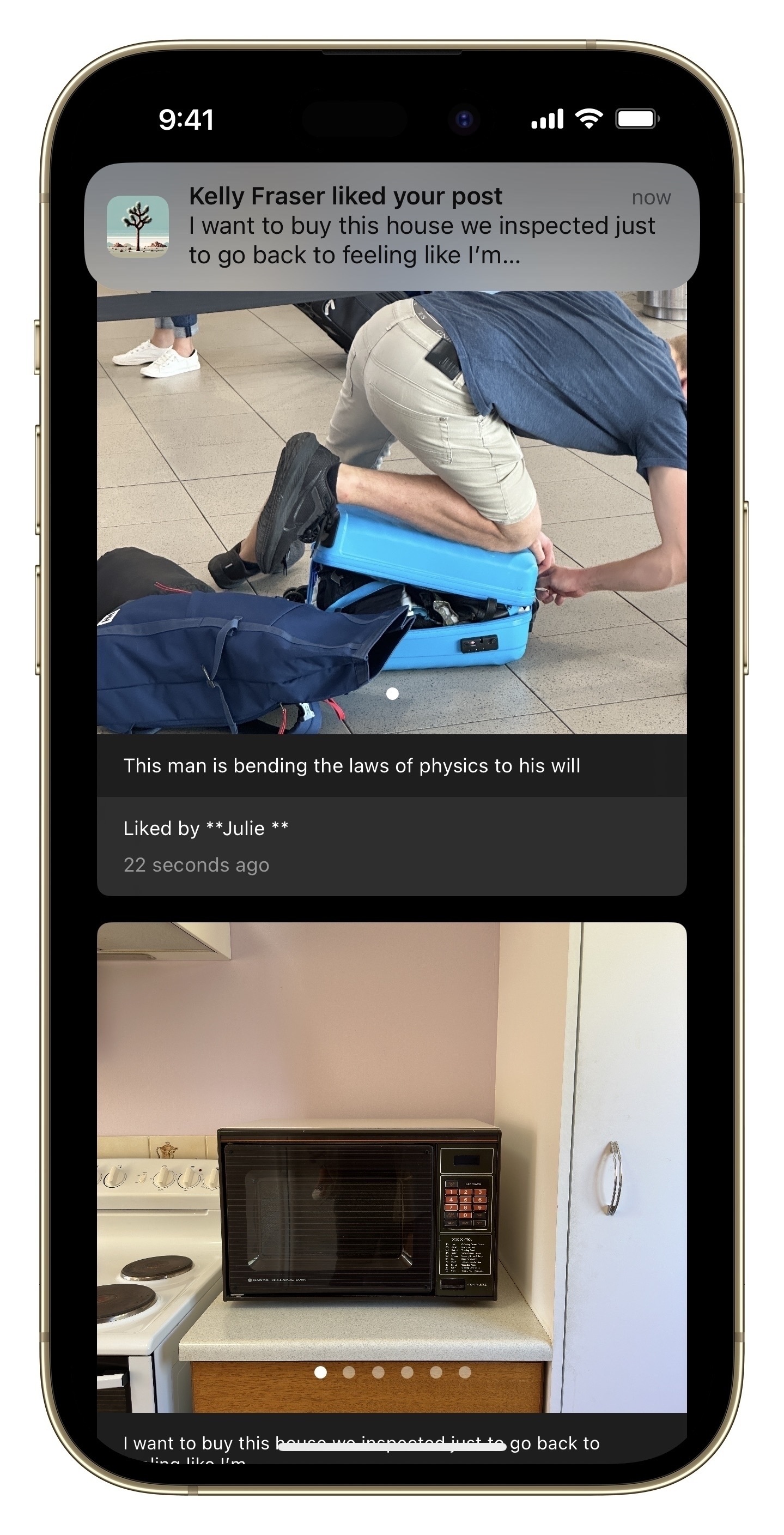
-
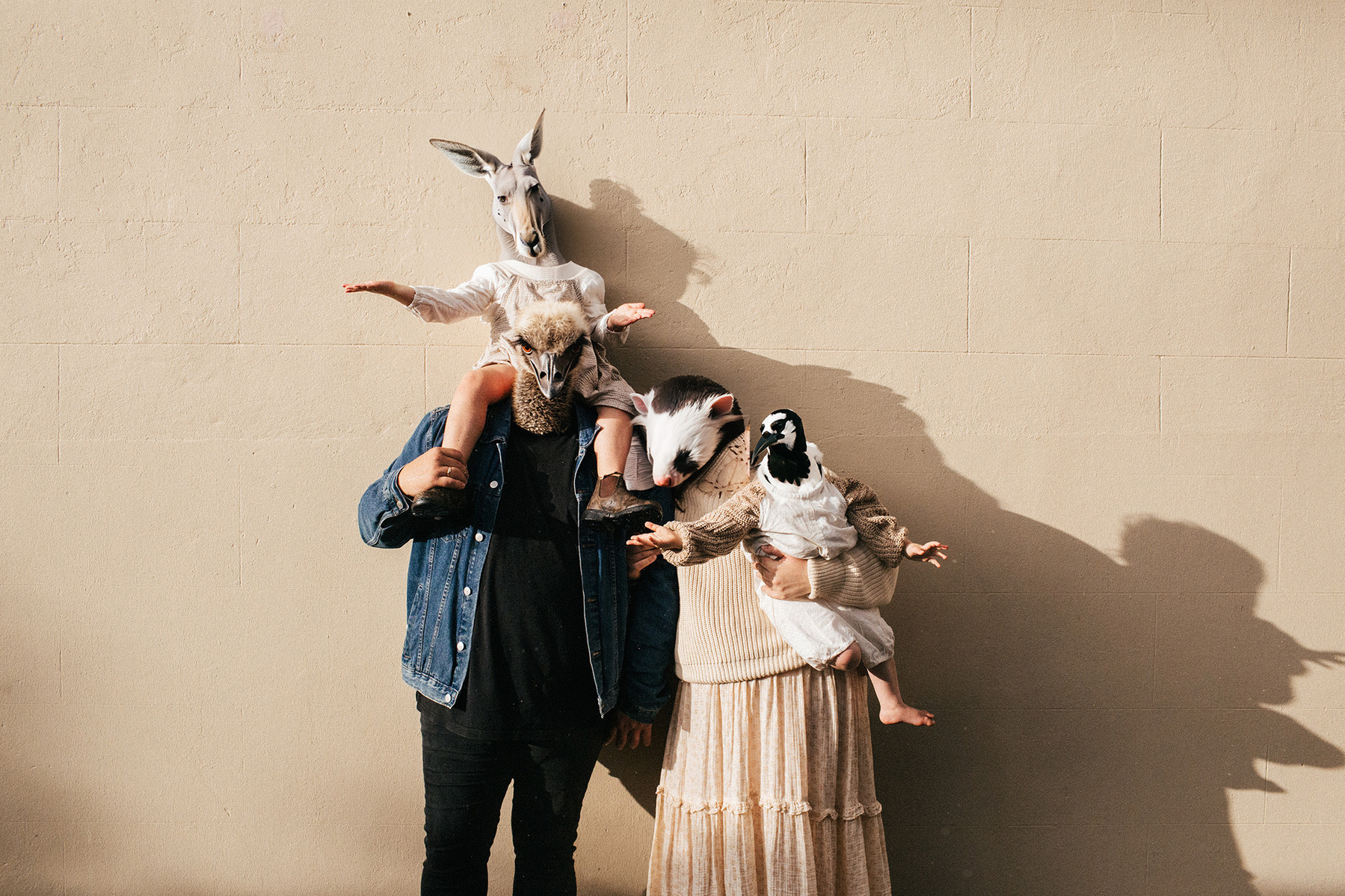
Like many amateur photographers, I do occasionally experiment with editing. I wanted to express my apologies for any confusion the family photograph we shared yesterday caused. I hope everyone celebrating had a very happy Mother’s Day. J.
-
If this photo I made ten minutes ago excites you, you're going to love this real estate listing for our home.
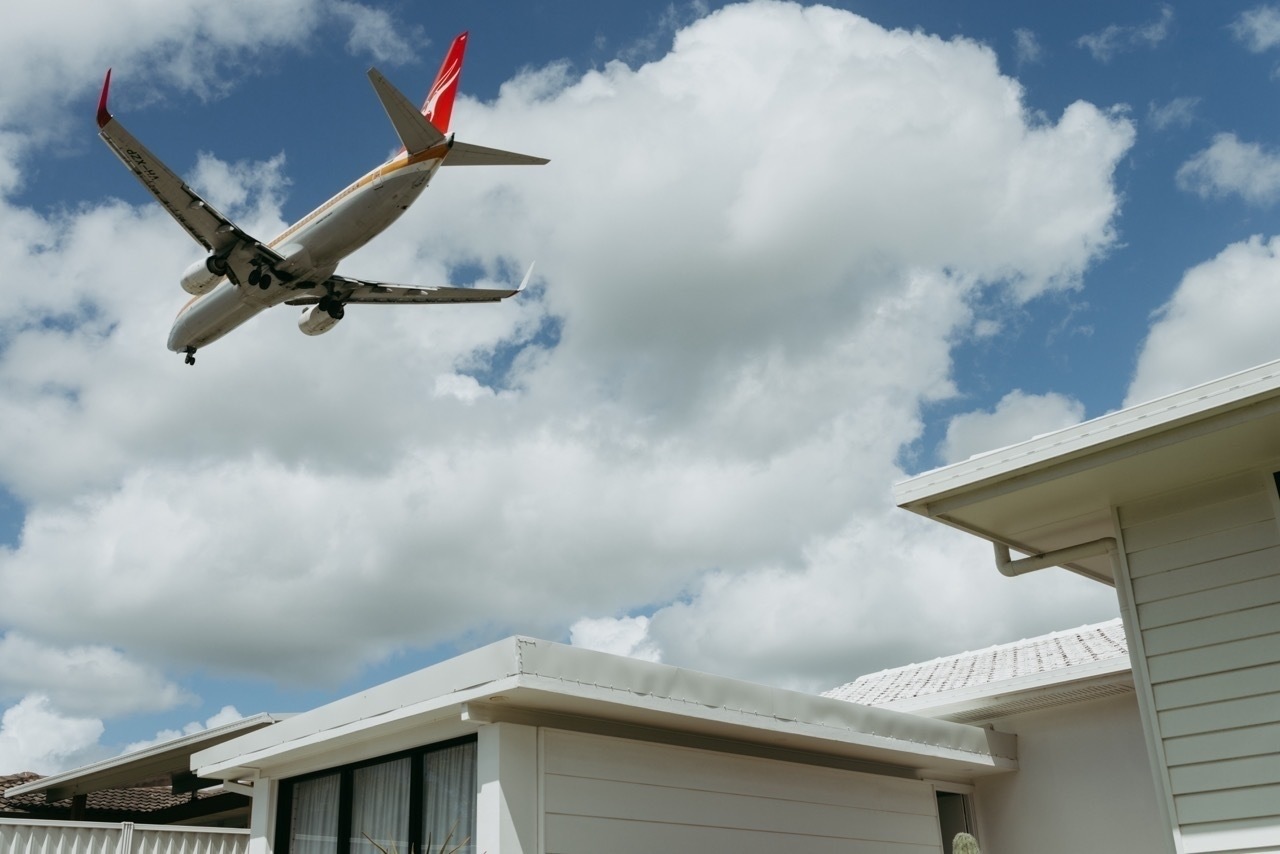
-
A lovely Qantas flight attendant yesterday asked me if I was Josh Withers, at which point I prepare myself to say yes and have a chat to her about a wedding of mine that she attended or how she saw me on TV, like the D-Grade celebrity fool I am.
But no, she goes on to say how my wife is lovely and amazing. The flight attendant was planning to get married and was considering eloping so she ends up on the phone with Britt talking about eloping with The Elopement Collective.
Anyway, Britt really is all that and more, you know.
I was planning on singing her praises today anyway but I’ve opened up the old social media today and found it to be International Women’s Day, so it’s an even better reason to scream her name from the rooftops.
Not only is she the best person in my world, plus she made me a father of two of my other favourite humans, but Britt also spends countless hours each week counselling the brides and grooms of Australia about getting married, whether they should elope or not and whether or not we’re the best place for them to do that.
I’ve always said the thing about being remarkable is that remarkable people are easily remarked on, you are able to remark on them because their talent, beauty, smarts, intelligence is so easily witnessed.
You’re remarkable, Brittany Withers.
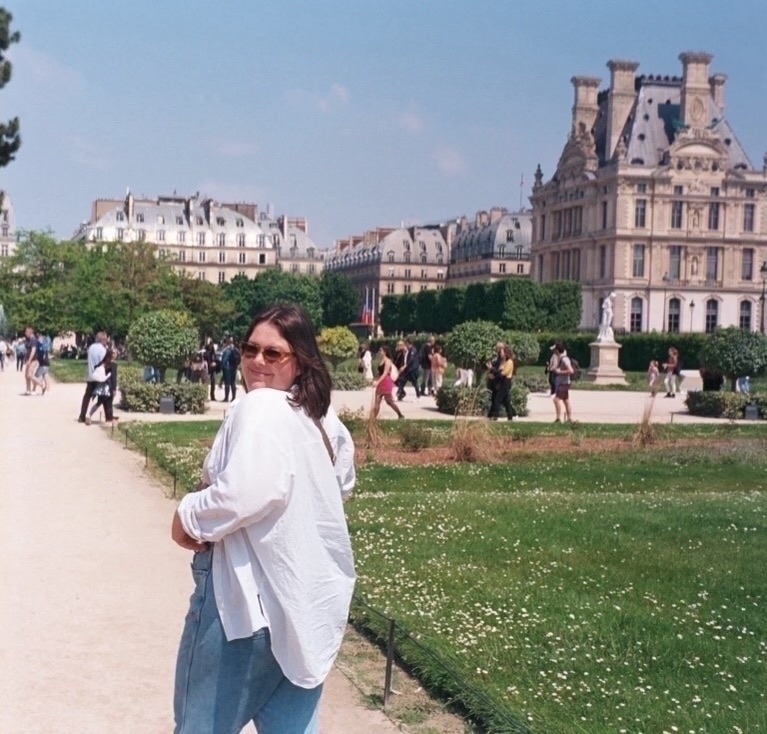
-
Prediction: Wedding photography is about to undergo a massive change.
The people who hold cameras like Fuji/Sony/Canon/Nikon need to figure out how to get their JPEGs right in camera.
They might still deliver a cull of 30 odd photos a week or three later, but the expectation is moving to fast turnaround.
The lovely iPhone holding kids - content creators - will fade away as professionals figure out how to deliver in minutes instead of months. Or maybe they don’t fade but they take up the bottom end of the marketer.
The added benefit is that because of the increased efficiency, wedding photographers will be able to take on more work. Where a wedding might have been five to ten days work, so you would be limited to maybe 30-40 weddings a year, accounting for seasonal influxes, now that same photographer might take on double the work to achieve same pay, effectively reducing the price of wedding photography because it requires less energy and effort.
-
I’m fast realising that my only real talent in this world is being the member of the conversation who can provide the comedic exit of the conversation before we play a guitar riff, the station call sign is aggressively voiced by an older male, then five minutes of ads is played whilst the listener changes radio station.
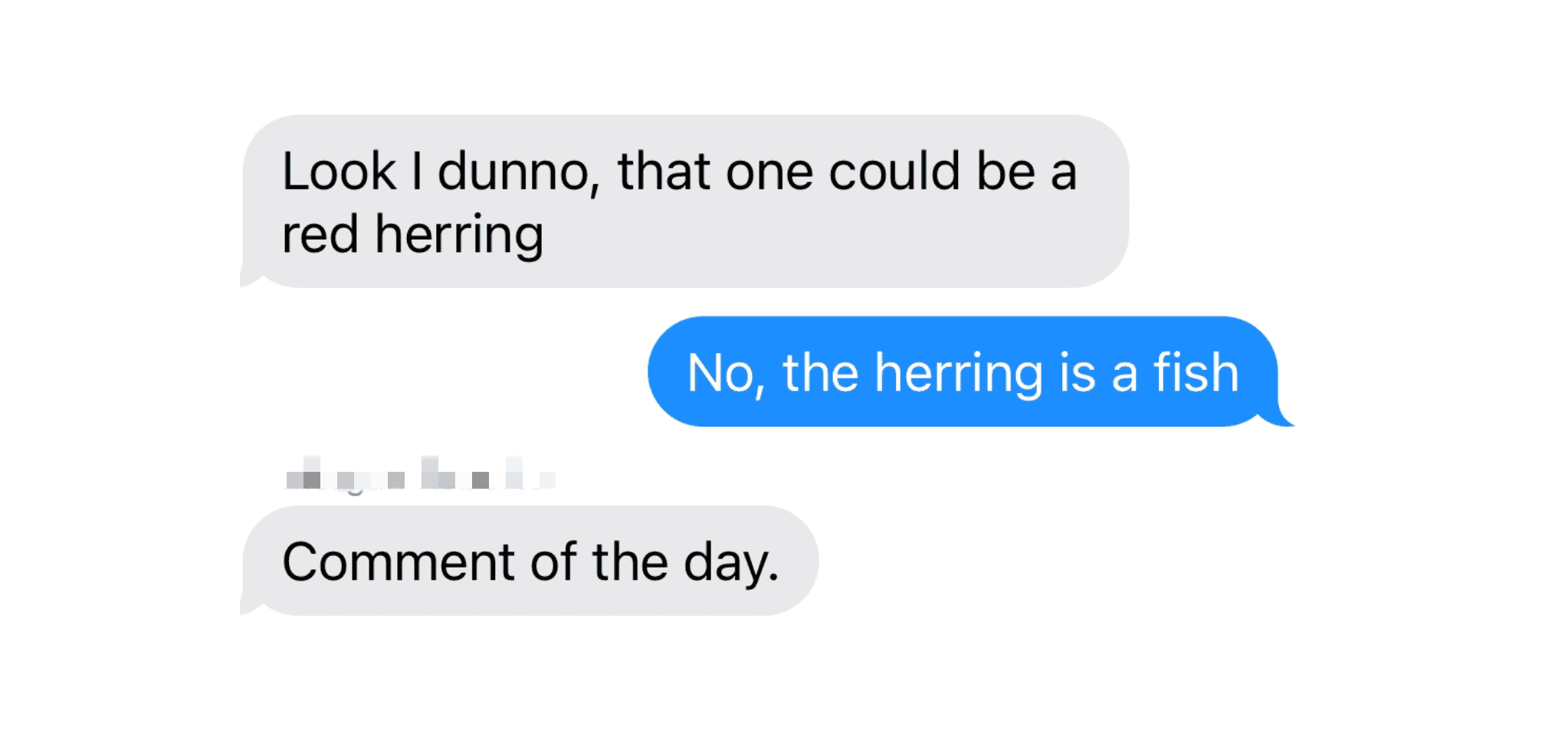
-
I asked readers of my Aisle Authority daily letter to the best celebrants in the world what they thought about the length of the daily email letter ... the winner was the third of the Goldilocks bears
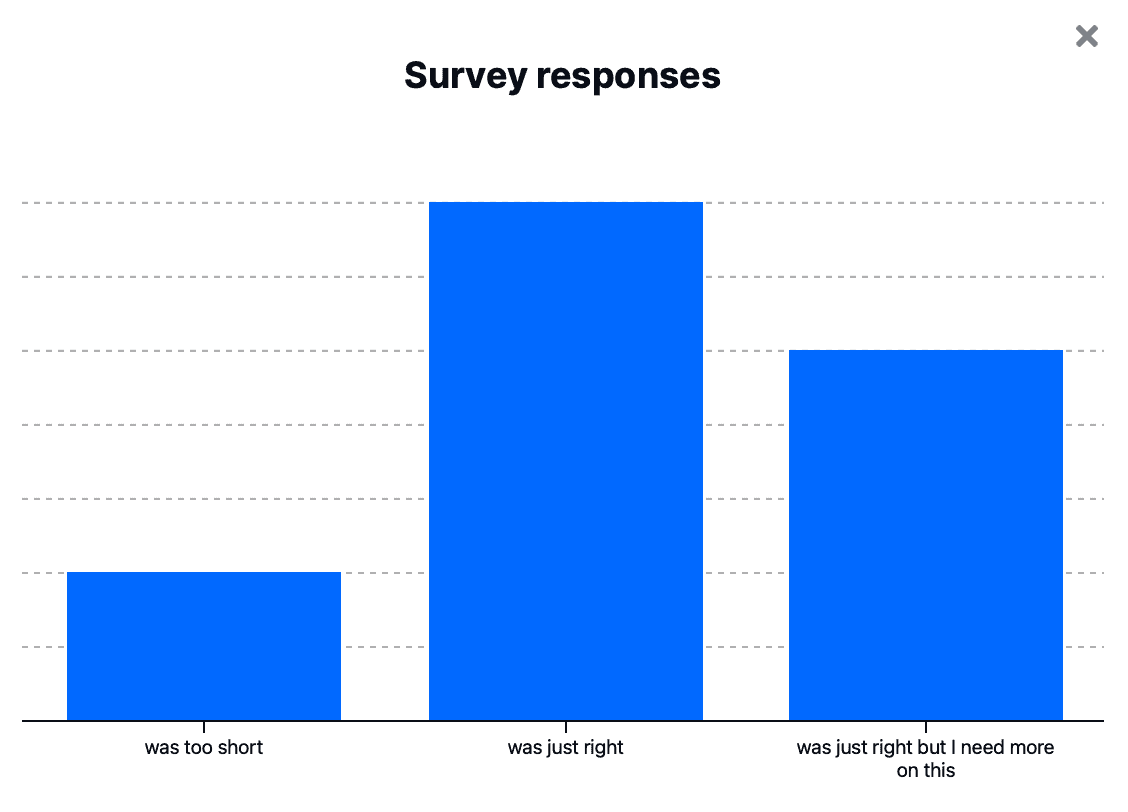
-
New favourite website: fontreviewjournal.com
-
I'm thoroughly convinced that email can be a meaningful method of communication, relationship, community, and entertainment in the future. I've always been proud of what my friend @james@bne.social is making at @podnews.net so reading this article by Guy Tasaka encourages me in my little prophetic thought.
I have a deep appreciation for newsletters. They say everything old is new again. Today, with an almost overwhelming amount of information we must sift through on news sites, social media and third-party aggregation sites, like Apple and Google News, it’s nice to have information curated and summarized for me and delivered to my inbox. That kind of sounds like a newspaper.
-
The CEO of the biggest supermarket chain in Australia is stepping down because no other news media dared question an advertiser.
This is the strength and power of listener/reader supported media, and the strength of publicly funded media.
You can't lose an advertiser because you asked good questions, because you aren't reliant on, or don't have, advertisers.
Our reluctance to individually fund good journalism are part of the reason our groceries are so expensive, that and because we're too lazy to shop around, or better, buy local food from local producers.
-
Matt Ruby on metadata:
"Is metadata really that powerful?"
"OK, let's say there's a guy who texted a girl 5 times without getting a reply. Would you need to actually read the messages to know what's going on there?"
"Nah, I 100% get what happened."
"That’s the power of metadata."
-
I find reading the news depressing but I still want to get an idea of what's happening in the local news so I made an AI bot that writes the daily Tasmanian news headlines as a poem: tas.lol.
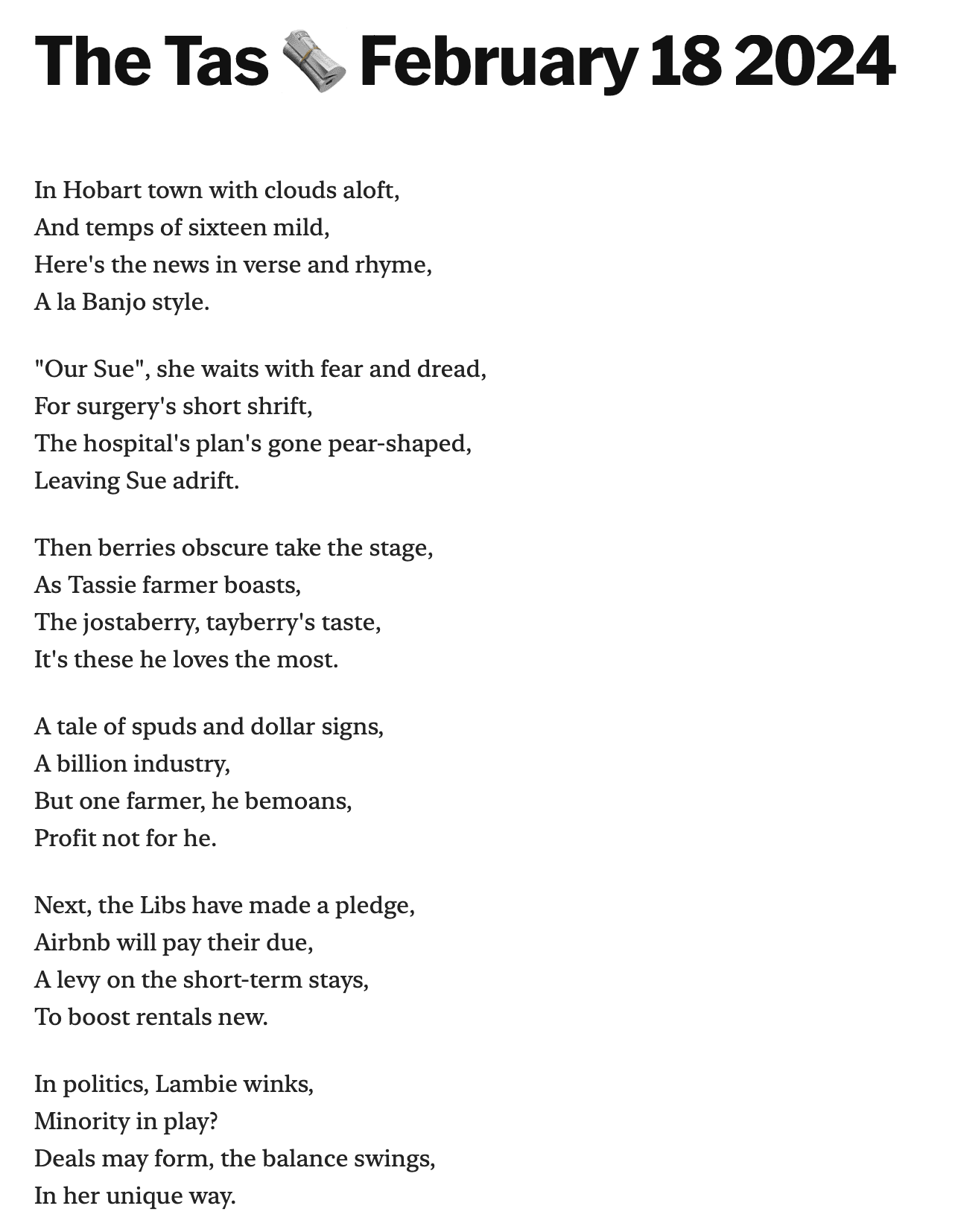
-
Hobart sunset - high res download for any Apple Vision Pro users, and direct link to the 360 photo on Panoraven and direct link to the 360 JPEG in case it works?
It would be super cool to see how these photos can be interacted with and enjoyed on an Apple Vision Pro.

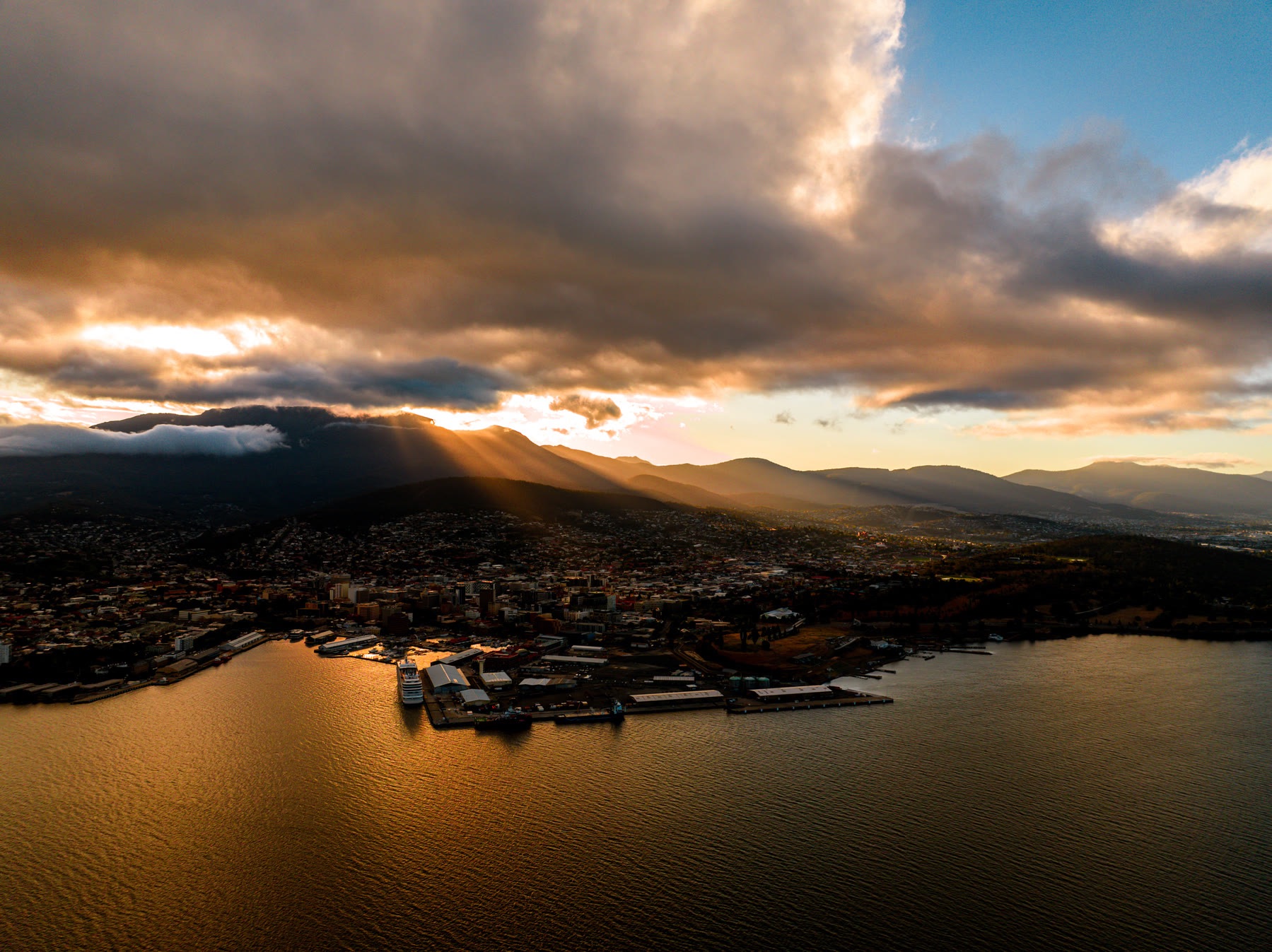
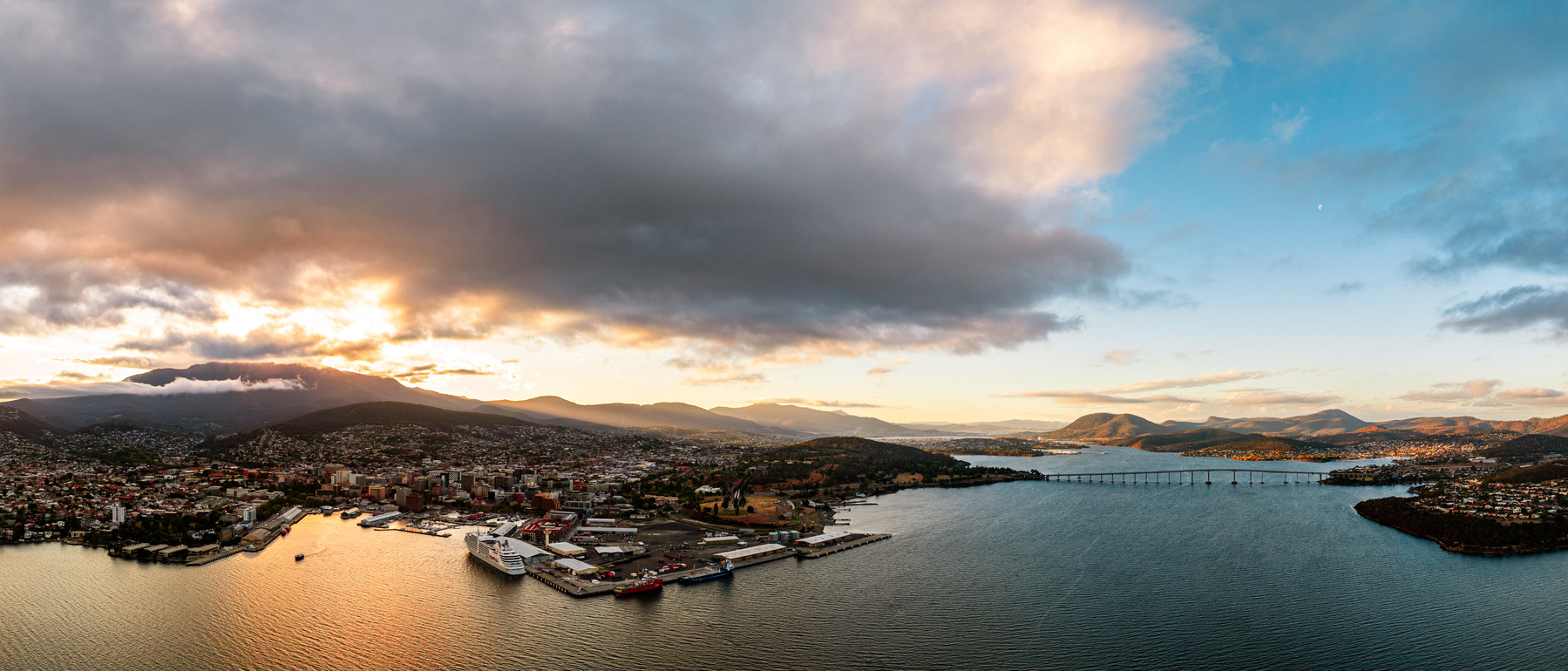
-
Levelling up in nerdom is running your own AI/LLM on your own hardware.
-
The theory goes like so: you are born with so many fucks to give.
-
I’ve just found out - through hearing it - that the Disney cruise ship horn blows the tune “When you wish upon a star” in port and now I feel all magical and whimsical.
-
Tracy Chapman & Luke Combs at the Grammys singing Fast Car
-
10 issues into my new daily letter to the best wedding celebrants in the world, Aisle Authority, and it's feeling good.
Shoutout to my Swede and Hong Kong readers!
aisleauthority.email to subscribe
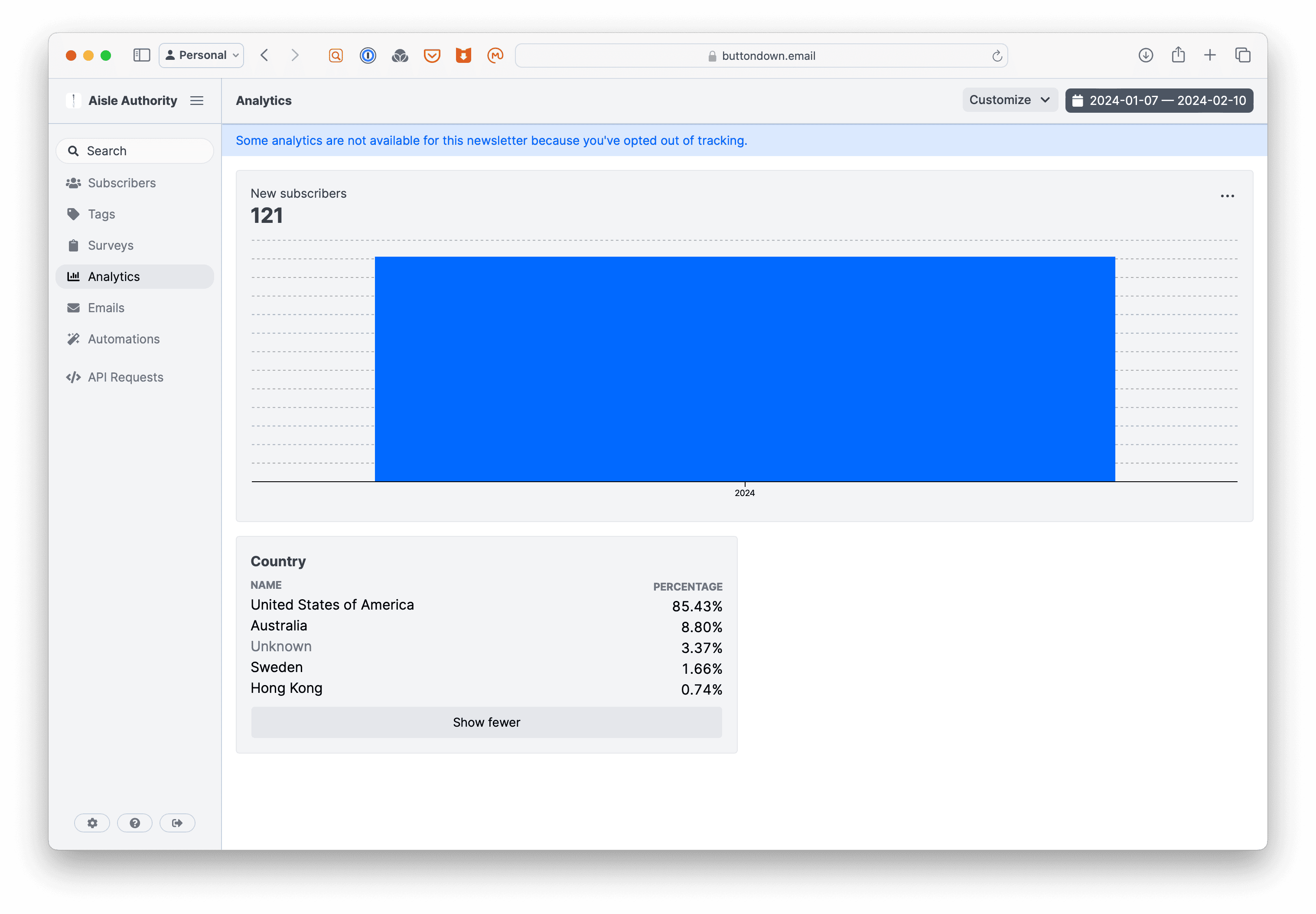
-
Seriously
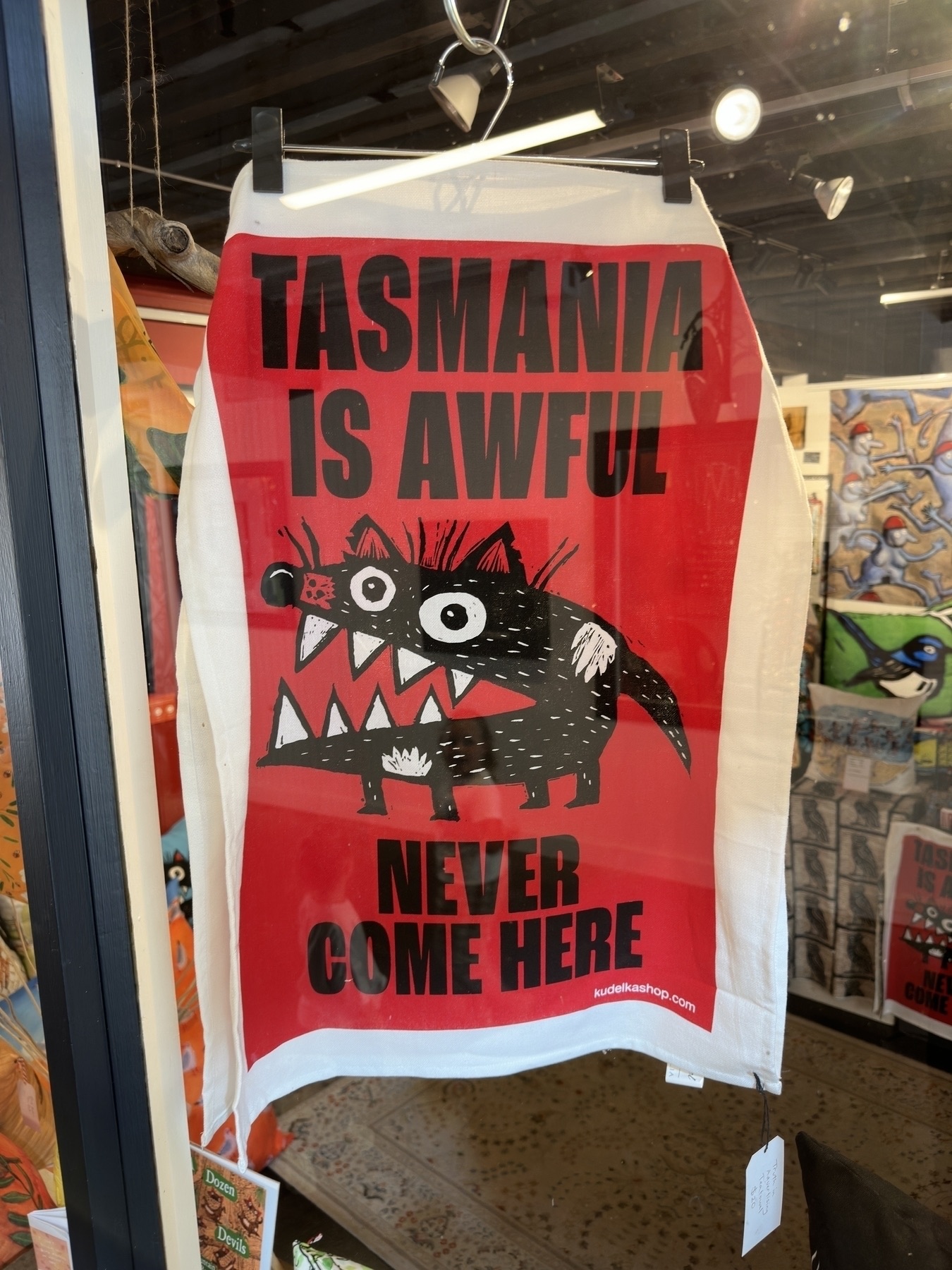
-
No-one asked but if I was a wrestler my walk-out music would be In The Shadows by The Rasmus
-
For those of us that know Internet Explorer 4.0 was the GOAT, a reflection on the Geocities, marquee rage, dial-up Internet era, the 90s on the web, by Zach Holman
Have you ever shoved a
<blink>into a<marquee>tag? Pixar gets all the accolades today, but in the 90s this was a serious feat of computer animation. By combining these two tags, you were a trailblazer. A person capable of great innovation. A human being that all other human beings could aspire to. You were a web developer in the 1990s. -
I've written the first seven issues of my new daily email letter for wedding celebrants: Aisle Authority.
I'm writing for the North American wedding officiants and celebrants that contact me every day, but Aussies and well honestly anyone, is welcome to jump on board.
www.aisleauthority.email is the place to subscribe if you want to be the best damn wedding ceremony creator in the world.
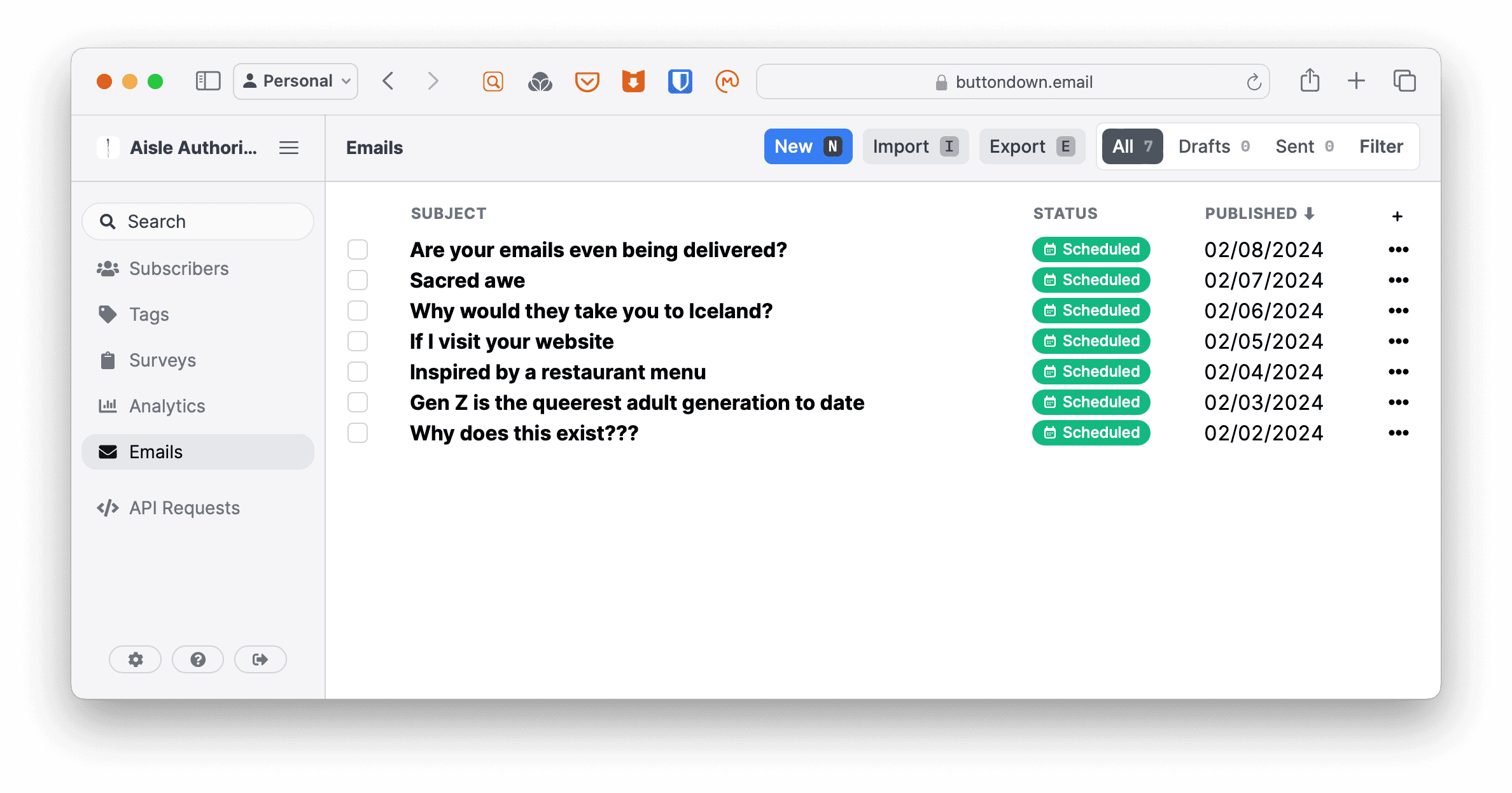
-
For those of us that know Internet Explorer 4.0 was the GOAT, a reflection on the Geocities, marquee rage, dial-up Internet era, the 90s on the web, by Zach Holman
Have you ever shoved a
<blink>into a<marquee>tag? Pixar gets all the accolades today, but in the 90s this was a serious feat of computer animation. By combining these two tags, you were a trailblazer. A person capable of great innovation. A human being that all other human beings could aspire to. You were a web developer in the 1990s. -
Took a peek at a peak across the Remarkables today
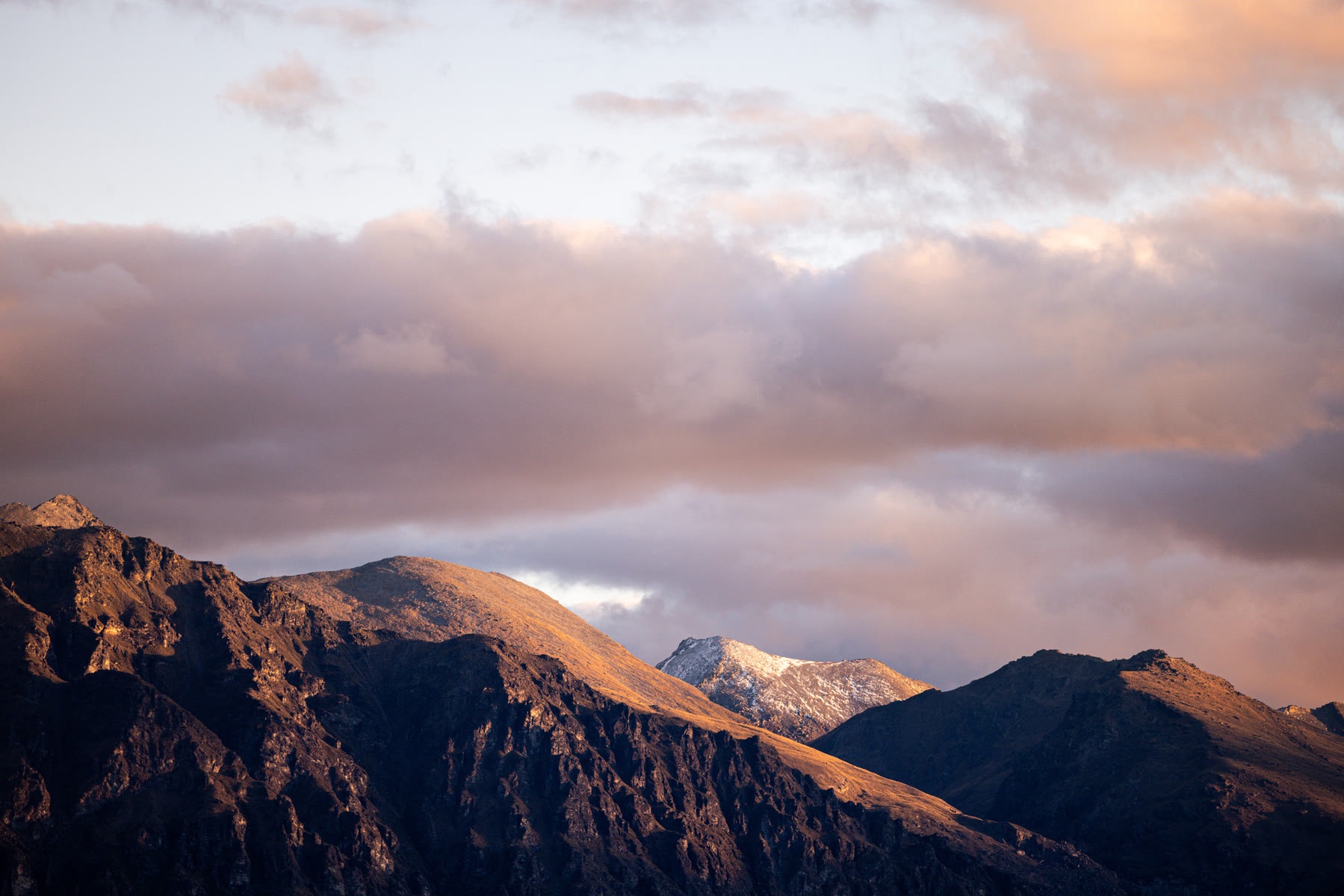
-
40 years of the Mac and why I can't use anything else now
By the time I was buying my first Apple Macintosh computer the launch of the Mac in 1984 was already a myth, a story shared from one nerd to another, like in an Aboriginal Australian cave painting.
In grade five there was an Apple IIe at the back of the classroom no-one knew how to use but when I realised that the computer magazines at the library full of computer programs and games written in Basic contained not just ideas and lines of code - yes, actual real code just printed in paper magazines - but code I could type into an Apple computer, execute, and then enjoy, I was hooked.
I kept on reading those computer magazines like APCMag, PC User, PCMag, Macuser, Mac Format, and countless others whose names escape me but the school library stocked so generously.
At one stage I designed on paper my dream computer which would triple-boot Microsoft Windows, OS/2 Warp, and Mac OS System 8. I think a "Mac on a PCI card" product had been released, or the opposite for inserting in a Mac, so I designed my Frankenstein's monster of a computer and presented it to class imagining that they would a) care, and b) be in awe of my product design and computer engineering. Alas neither Steve Jobs or Bill Gates wrote and congratulated me.
I'm not sure how I wrangled it, but somehow our family acquired a Packard Bell IBM-compatible personal computer with a 486 SX 25/33 processor, 4MB of RAM, no sound card, but it did come with Windows 3.11.
The Radio Rentals rented computer and I quickly became close friends but somehow with its 25MHz CPU and 4MB of RAM the computer ran slower than a slug chasing down an ice cream truck.
Enter, my Uncle Grant.
Uncle Grant was my super uncle from Townsville who sold and serviced Apple computers. We'd not been on friendly talking terms about computers since I used his Apple Macintosh and neglected to save a document he had open, but he was quick to diagnose the problem with my computer's speed: I had an image as my desktop wallpaper. Also, he was quick to quip that "a Mac wouldn't have that problem."
What he neglected to acknowledge is that a Withers didn't have a spare buck either so we went without a Mac for about a decade more.
As I'm sure is the story for most modern Mac users, having your own personal Macintosh Desktop Experience was a dream for too long.
Years later Apple announced the Intel transition from Power PC chipsets and all of a sudden, thanks to an Intel Inside and Bootcamp, these new Macs can run Windows and Mac OS X which is the perfect justification for a nerd to make for a new Apple MacBook purchase.
All white and plastic, it was beautiful, and that new Apple MacBook never needed to be tainted by Bootcamp and Windows. It turned out that Mac OS is actually quite capable on its own.
Not quite as beautiful as that G3 iMac I acquired years after it was ever useful, but always be beautiful.

And that's why I can't use any other OS today. I've tried Windows and Linux of late, I'm always open to a change so I know I'm using the best tools for the job, but my taste gravitates to the Mac. It is beautiful, useful, and just plain nice. I've even tried the iPad as a main computer, or the phone. But it'll always be the Mac for me. Happy birthday, and hello, old friend.
-
Marketing is actually part of the product.
That’s an intangible element of Apple products that is often missed by the Android, Windows, Meta Quest commenters.
Sure, the other products do “the same things” the Apple products does, but Samsung, Microsoft, Meta, Google marketing is woeful.
This isn’t an Apple thing, this is a human thing. Some of us just want to be a part of something beautiful and cool.
An Apple invoice and delivery is not just some plastic and metal, software, and some USB cords. It’s also a story, a narrative that some people with certain taste, would like to purchase.
And the rest of you can go use your Android, Dell, Meta Quest.
-
Ben Thompson's interview podcast with Spike Eskin about radio from 2023 is a really good listen if you have a Stratechery membership.
